It seems to me that the information that betting so heavily on FTX and SBF was an avoidable failure. So what could we have done ex-ante to avoid it?
You have to suggest things we could have actually done with the information we had. Some examples of information we had:
First, the best counterargument:
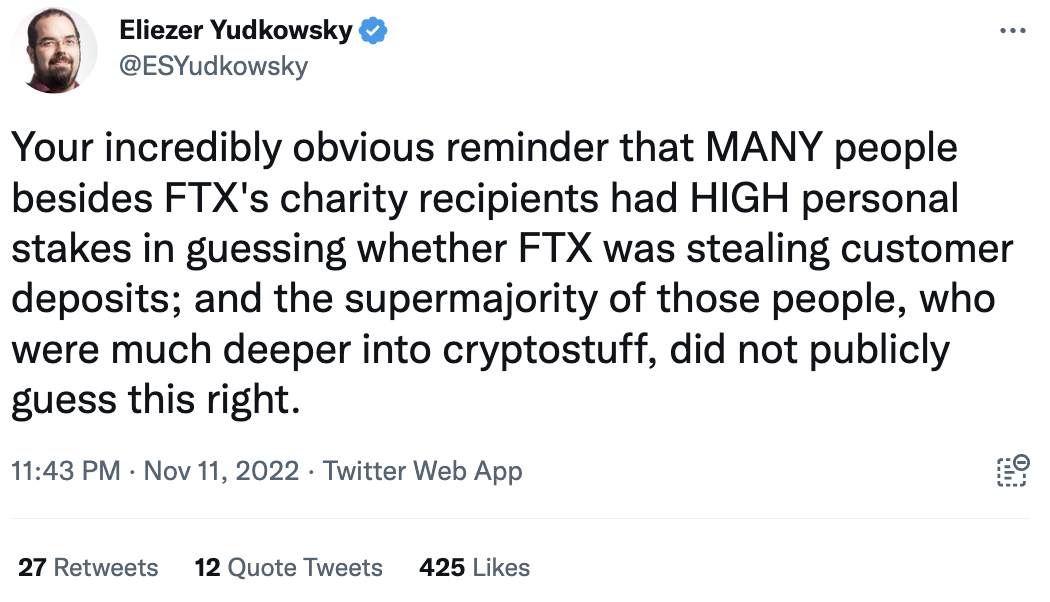
Then again, if we think we are better at spotting x-risks then these people maybe this should make us update towards being worse at predicting things.
Also I know there is a temptation to wait until the dust settles, but I don't think that's right. We are a community with useful information-gathering technology. We are capable of discussing here.
Things we knew at the time
We knew that about half of Alameda left at one time. I'm pretty sure many are EAs or know them and they would have had some sense of this.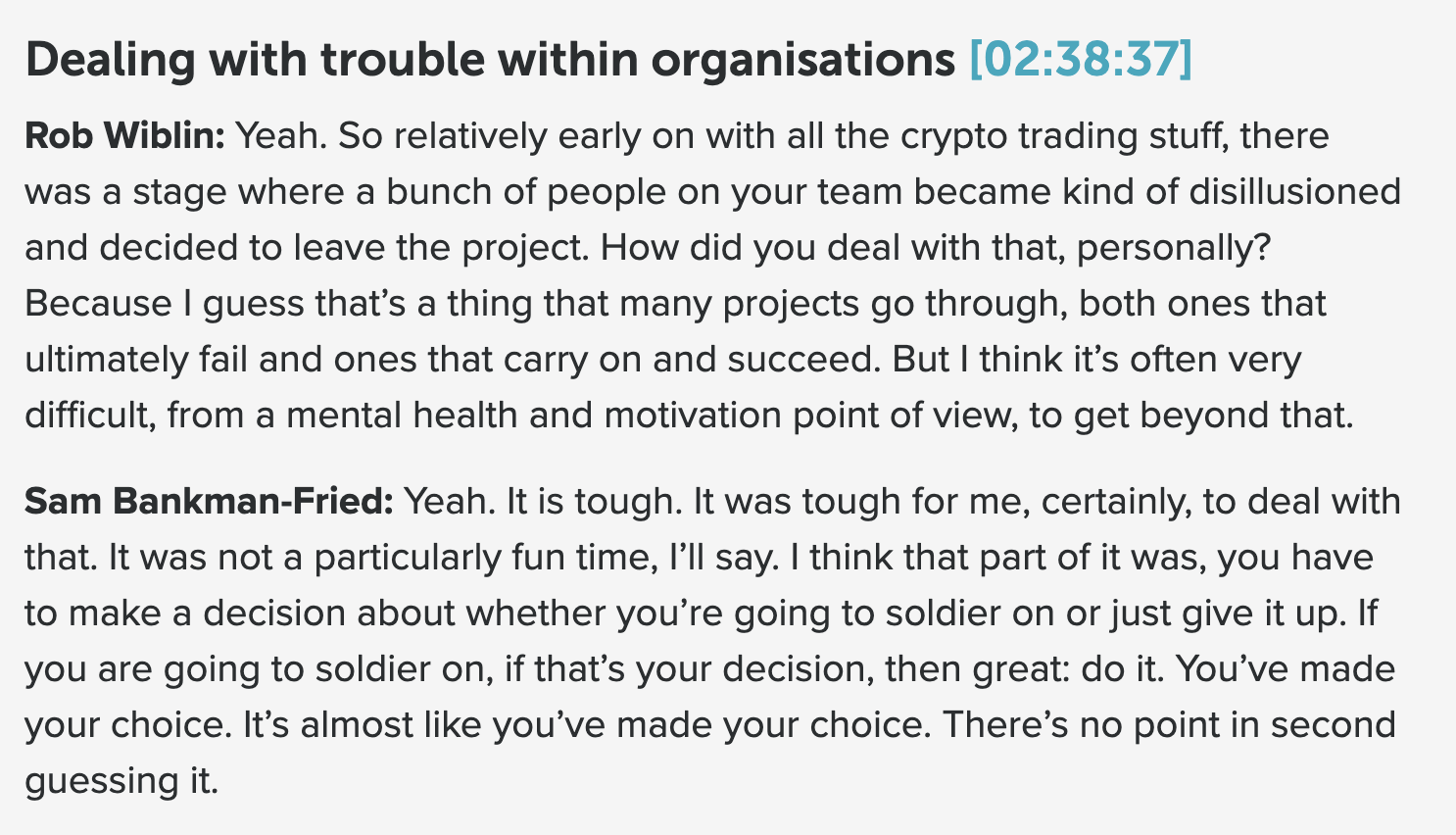
We knew that SBF's wealth was a very high proportion of effective altruism's total wealth. And we ought to have known that something that took him down would be catastrophic to us.
This was Charles Dillon's take, but he tweets behind a locked account and gave me permission to tweet it.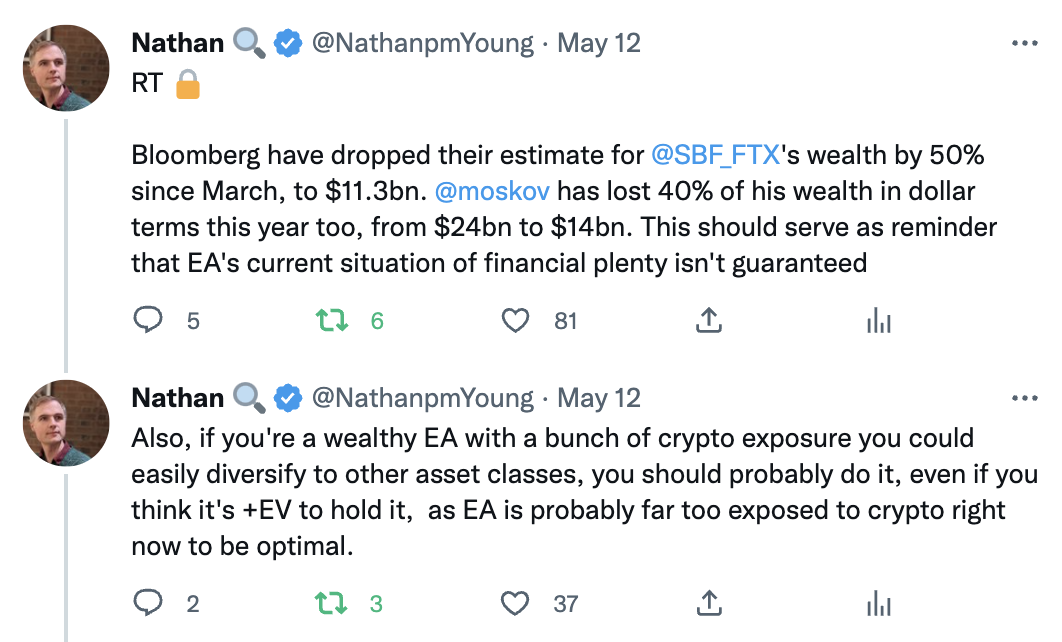
Peter Wildeford noted the possible reputational risk 6 months ago:
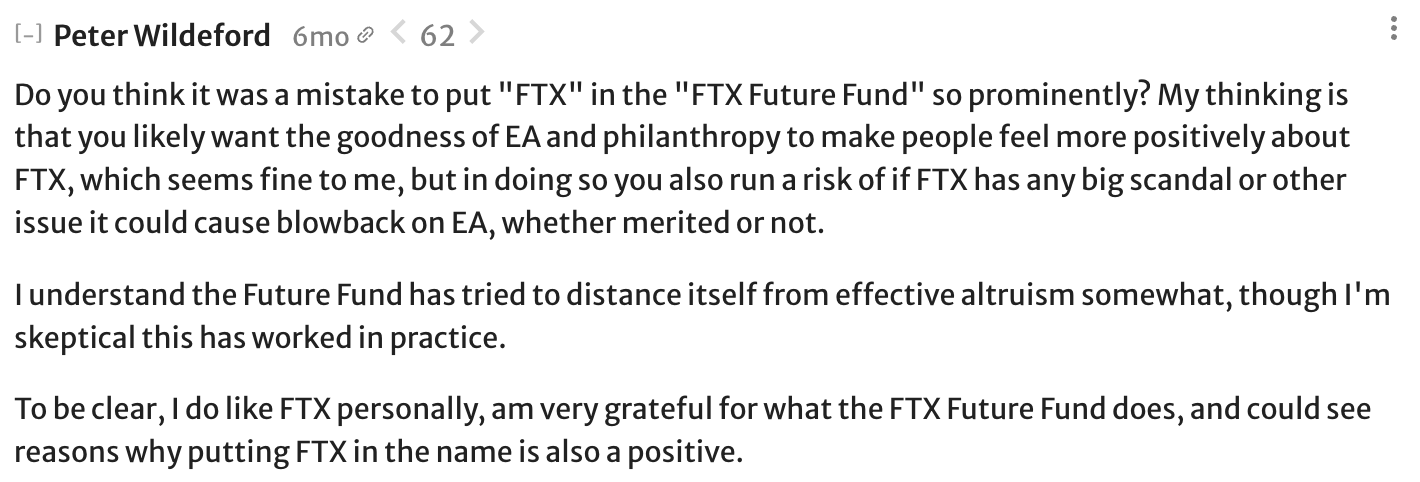
We knew that corruption is possible and that large institutions need to work hard to avoid being coopted by bad actors.
Many people found crypto distasteful or felt that crypto could have been a scam.
FTX's Chief Compliance Officer, Daniel S. Friedberg, had behaved fraudulently In the past. This from august 2021.
In 2013, an audio recording surfaced that made mincemeat of UB’s original version of events. The recording of an early 2008 meeting with the principal cheater (Russ Hamilton) features Daniel S. Friedberg actively conspiring with the other principals in attendance to (a) publicly obfuscate the source of the cheating, (b) minimize the amount of restitution made to players, and (c) force shareholders to shoulder most of the bill.

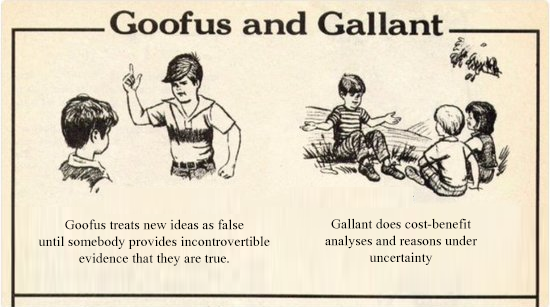
There was no avoiding of this.
The only way would've been with:
The first option is a non-starter because there are no such crypto regulations.
I don't know about the finances of FTX, but I do know about audits. Auditors work based on norms[1], and those norms get better at predicting new disasters by learning from previous disasters (such as Enron). The same is true of air travel, one of "the safest ways of travel".
The second option is also a non-starter because of ... ¿The First Amendment?
Therefore, we couldn't have "avoided" ... What exactly?
If what we want is to avoid future fraud in the Crypto community, then the goal of the Crypto community should be to replicate the air travel model for air safety[2]:
However, if the goal is to avoid harming the EA "brand", then there's a profession for that. It's called "Public Relations".
PR it's also the reason why big companies have rules that prevent them from (publicly) doing business with people suspected of doing illegal activities. ("The wife of the Caesar must not only be pure, but also be free of any suspicios of impurity")
For example, EA institutions could from now on:
In fact, fraud in NGO's happens all the time. One of the reasons why Against Malaria Foundation had trouble implementing their first Give Well charity is that they were too stringent on the anti corruption requirements for governments.
It's in the direct interest of the EA community to minimize the amount of fraudulent NGO's, and to minimize the amount of EA branded fraudulent NGO's.
My guess is that the only way in which alarms would've ringed for FTX investors was by realizing that there was a "back door" where somebody could just steal all the money.
Would a financial auditor have looked into that, the programming aspect of the business?
I doubt it, unless specific norms were in place to look for just that.
In fact, at the same time that we're discussing this, a tragic air travel accident happened on a Dallas Airshow. Our efforts might be more "effective" by not discussing SBF and instead discussing Airshow Security and their morality.
I didn't know that EA was a trademark. And if I (who am involved in EA) didn't know, then the public certainly doesn't know.
What we need is not a trademark but a "certification" or "seal of quality" to certify NGO's that actually fulfill EA principles, and in order to be able to disown future frauds.